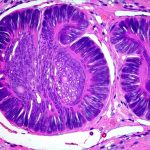The modern diet, with its processed foods, environmental toxins, and chronic stressors, has led many people to experience a growing array of digestive issues and sensitivities. It’s not uncommon now for individuals to identify food intolerances that seemingly appear ‘out of nowhere’, leading to bloating, fatigue, skin problems, or even autoimmune flares. While often dismissed as simple allergies or lifestyle choices, these reactions are prompting deeper investigation into the underlying causes – and increasingly, attention is turning toward the health of the intestinal barrier. Many believe there’s a strong link between food sensitivities and what’s commonly known as ‘leaky gut’, or increased intestinal permeability, but understanding this relationship requires nuance and careful consideration. It’s essential to differentiate between true food allergies (IgE mediated immune responses), intolerances (often enzymatic deficiencies or pharmacological reactions) and sensitivities which often involve a more complex interplay of immune activation and inflammation.
This emerging awareness isn’t just about identifying what foods to avoid; it’s about understanding why these sensitivities develop in the first place, and addressing the root causes rather than merely managing symptoms. A healthy gut barrier is critical for overall health because it’s our primary defense against external threats – undigested food particles, bacteria, viruses, and toxins. When this barrier becomes compromised, these substances can enter the bloodstream triggering an immune response which can lead to systemic inflammation and a cascade of related health problems. The potential connection between increased intestinal permeability and widespread sensitivity symptoms is driving significant research and conversation within both conventional and functional medicine communities. This article will explore that relationship in depth.
Understanding Intestinal Permeability & Food Sensitivities
‘Leaky gut’, formally known as increased intestinal permeability, describes a condition where the tight junctions between the cells lining the small intestine become loosened or damaged. These tight junctions normally act as a highly selective barrier, controlling what passes from the digestive tract into the bloodstream. When compromised, larger molecules – undigested food particles, bacteria, and toxins – can ‘leak’ through the intestinal wall, triggering an immune response as the body recognizes them as foreign invaders. This constant activation of the immune system leads to chronic inflammation, which is at the root of many health problems. It’s important to note that “leaky gut” isn’t a formal medical diagnosis itself; it’s a descriptive term for this physiological process.
The development of food sensitivities often follows this pattern. The initial exposure to a potentially reactive food may not cause an immediate issue, but if the intestinal barrier is compromised, repeated exposure can lead to the immune system recognizing these partially digested food particles as threats. This triggers an inflammatory response each time the food is consumed, leading to symptoms like bloating, gas, diarrhea, constipation, skin rashes, headaches, fatigue, and even joint pain. These aren’t allergic reactions (which involve IgE antibodies and often rapid, severe responses), but rather more subtle immune activations that can be difficult to pinpoint without specialized testing. Identifying these sensitivities through elimination diets or food sensitivity testing can offer valuable insights into how the gut barrier is impacting overall health. Understanding gut healing could provide relief from ongoing symptoms.
Furthermore, it’s crucial to remember that intestinal permeability isn’t always a bad thing. It’s a dynamic process and some degree of permeability is necessary for nutrient absorption. The problem arises when excessive permeability occurs, allowing unwanted substances to enter the bloodstream and triggering chronic inflammation. Factors like stress, poor diet (high in processed foods, sugar, and unhealthy fats), certain medications (like NSAIDs and antibiotics), infections, and imbalances in gut bacteria can all contribute to increased intestinal permeability. The impact of stress on the body should not be underestimated.
The Gut-Immune Connection & Systemic Inflammation
The gut is the largest immune organ in the body, housing approximately 70-80% of the immune system. This makes sense when you consider its role as a primary interface with the external environment. The constant influx of food and exposure to microbes necessitate a robust immune response within the gut. When the intestinal barrier is intact, it allows for efficient nutrient absorption while protecting the body from harmful substances. However, when permeability increases, this delicate balance is disrupted. The immune system becomes chronically activated by these ‘leaked’ molecules, leading to systemic inflammation – meaning inflammation throughout the entire body, not just in the gut.
This chronic inflammation has been linked to a wide range of health conditions, including autoimmune diseases (like rheumatoid arthritis and Hashimoto’s thyroiditis), skin disorders (like eczema and psoriasis), neurological problems (like brain fog and depression), and even cardiovascular disease. The inflammatory response isn’t limited to reacting to food particles either; it can also react to gut bacteria that have escaped the intestinal barrier – further exacerbating the cycle of inflammation. The interplay between the gut microbiome, intestinal permeability, and immune function is incredibly complex, and restoring balance in these areas is key to addressing many chronic health issues. A healthy gut microbiome aids in strengthening the intestinal barrier, reducing inflammation, and supporting a balanced immune response.
- Probiotic-rich foods (yogurt, kefir, sauerkraut) can help cultivate a diverse and beneficial gut microbiome.
- Prebiotic fibers (found in onions, garlic, asparagus) feed the good bacteria in your gut.
- Reducing sugar intake and processed food consumption helps minimize inflammation and supports a healthy gut environment. Benefits of probiotics are numerous and can help restore balance.
Identifying Food Sensitivities & Testing Options
Determining if you have food sensitivities can be challenging due to their often delayed and varied symptoms. Unlike allergies which produce immediate reactions, sensitivities can manifest days or even weeks after consuming the offending food, making it difficult to connect cause and effect. Several methods can help identify potential triggers:
-
Elimination Diet: This is considered the gold standard for identifying food sensitivities. It involves removing common reactive foods (like gluten, dairy, soy, corn, eggs, nuts) from your diet for a period of 2-3 weeks, then gradually reintroducing them one at a time while carefully monitoring for symptoms. This method requires discipline and careful observation but can be very effective in pinpointing problematic foods. Keeping a detailed food journal is crucial during this process.
-
Food Sensitivity Testing: Various tests are available commercially that claim to identify food sensitivities through IgG, IgA or other antibody testing. However, the scientific validity of these tests is debated. Many healthcare professionals believe that elevated IgG antibodies simply indicate exposure to a food rather than an actual sensitivity. While they can sometimes provide starting points for elimination diets, it’s important to interpret the results with caution and in conjunction with a qualified health professional.
-
Symptom Tracking: Keeping a detailed food journal and symptom diary is essential whether or not you choose to pursue formal testing. This allows you to identify patterns between what you eat and how you feel. Note down everything you consume, along with any symptoms experienced (bloating, fatigue, skin rashes, headaches, etc.) and the timing of those symptoms. Gut health is vital to overall wellbeing.
Restoring Intestinal Permeability: A Holistic Approach
Addressing leaky gut requires a multi-faceted approach that focuses on healing the intestinal barrier, reducing inflammation, and restoring a healthy gut microbiome. It’s not simply about taking supplements; it’s about lifestyle changes and dietary modifications.
- Dietary Changes: Focusing on whole, unprocessed foods is paramount. Reducing sugar intake, minimizing processed foods and unhealthy fats, and incorporating nutrient-dense foods rich in vitamins and minerals are essential steps. Consider a temporary elimination diet to identify food sensitivities.
- Gut-Healing Supplements: Certain supplements can help support intestinal barrier function. These include:
- L-Glutamine: An amino acid that provides fuel for the cells lining the intestines.
- Zinc Carnosine: A combination of zinc and carnosine, shown to protect and repair the gut lining.
- Collagen Hydrolysate: Provides building blocks for tissue repair, including the intestinal wall.
- Stress Management: Chronic stress can significantly impact gut health. Incorporating stress-reducing techniques like mindfulness, meditation, yoga, or spending time in nature is crucial.
It’s also important to address any underlying infections or imbalances in the gut microbiome. Working with a qualified healthcare professional (such as a functional medicine doctor or registered dietitian) can provide personalized guidance and support in developing a comprehensive plan tailored to your individual needs. Remember that healing takes time and consistency – it’s not a quick fix but rather a long-term commitment to restoring overall health. Food sensitivities hereditary factors may play a role in some individuals.
The Role of the Microbiome & Future Research
The gut microbiome plays an integral role in maintaining intestinal barrier function. A diverse and balanced microbiome helps strengthen the tight junctions between cells, reduces inflammation, and protects against pathogens. When the microbiome is disrupted (dysbiosis), it can contribute to increased intestinal permeability and a cascade of related health problems. Factors like antibiotic use, poor diet, and chronic stress can all disrupt the microbiome.
Ongoing research continues to explore the complex relationship between leaky gut, food sensitivities, and systemic inflammation. Scientists are investigating new biomarkers for assessing intestinal permeability, developing more accurate diagnostic tests for food sensitivities, and identifying novel therapies for restoring gut health. The future of healthcare is increasingly focused on personalized medicine – recognizing that each individual’s gut microbiome and immune system are unique, requiring tailored interventions to address the root causes of illness. Gut microbiome influences many aspects of health.
It’s important to approach this topic with a critical mind and avoid sensationalized claims. While the link between food sensitivities and leaky gut is becoming increasingly recognized, it’s not always a simple cause-and-effect relationship. However, by understanding the underlying mechanisms and adopting a holistic approach to gut health, individuals can take proactive steps toward improving their overall well-being and addressing chronic health concerns. Building resilience is key for children experiencing these issues.


















